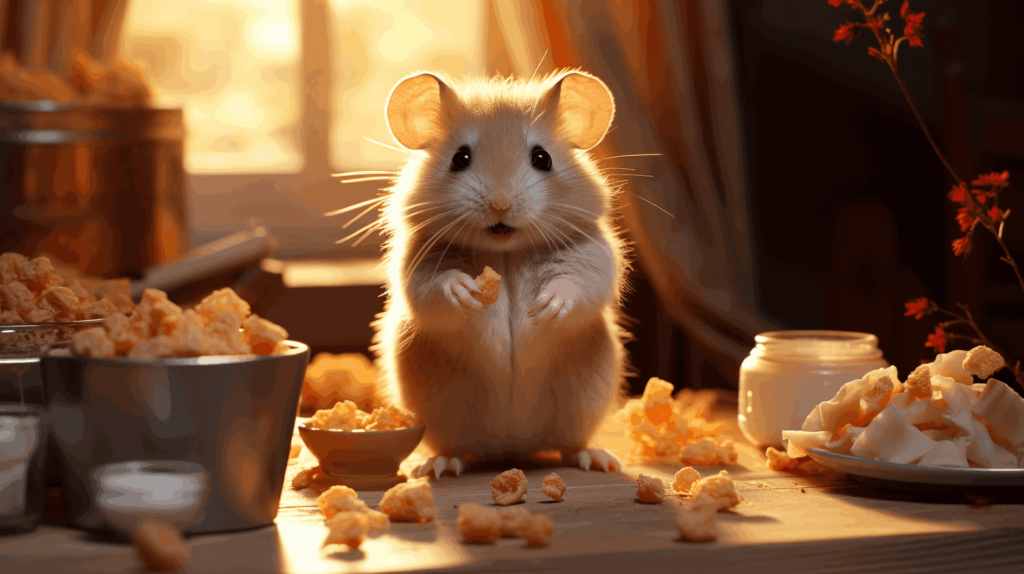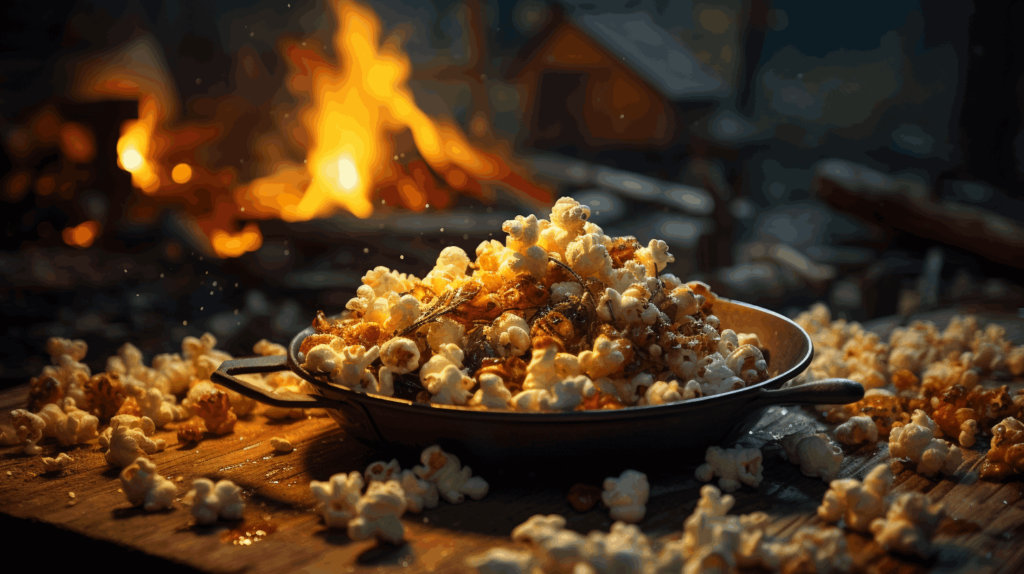The culinary preferences of snakes have long been a fascination, as these predatory creatures are known for their unique dietary habits. While their natural inclination leans towards a diet of rodents and small animals, curiosity often arises regarding the compatibility of human foods.
In this article, we delve into whether snakes can indulge in the beloved popcorn snack. By exploring the intricacies of their digestive system and understanding their natural dietary preferences, we aim to shed light on the potential dangers and alternatives to consider when feeding these fascinating reptiles.
Key Takeaways
- Snakes cannot eat popcorn due to their carnivorous digestive systems. Popcorn can cause digestive upset and is not nutritionally sound for snakes.
- Snakes are strictly carnivores and require uncooked proteins for their diet. Their diet should consist of whole, unprocessed, raw sources like rodents. Feeding snakes other foods can do more harm than good.
- Snakes do not require snacks like humans and can be satisfied with a diet of rodents. However, snakes can eat some human foods occasionally, such as fish, eggs, worms, amphibians, and insects.
- If live prey is unavailable, frozen-thawed rodents or commercially available snake food can be a suitable alternative for feeding snakes. Ensuring that the alternative food is appropriate for the snake’s size and species is essential.
The Carnivorous Digestive System of Snakes
Discussing the carnivorous digestive system of snakes, it is essential to understand their unique ability to dislocate their jaws to consume prey more significantly than their head. Unlike humans and many other animals, snakes do not have a fixed jawbone. Instead, they have a series of bones and muscles that allow their jaws to separate and stretch to an extraordinary degree. This adaptation enables snakes to swallow prey that may seem impossibly large for their slender bodies.
Once the prey is inside the snake’s mouth, muscular contractions and the movement of specialized teeth help guide the game down the snake’s throat and into its stomach. The snake’s stomach is highly acidic, aiding in the digestion of the prey, which is broken down and absorbed as nutrients.
This unique digestive system allows snakes to thrive on a diet of whole, unprocessed prey items.
The Dangers of Feeding Popcorn to Snakes
Feeding popcorn to snakes can be hazardous to their health due to the digestive upset it can cause. Popcorn is not nutritionally sound for their carnivorous diet. Snakes are strict carnivores and require a diet consisting of whole, unprocessed, and uncooked sources of protein, such as rodents.
Popcorn, a plant-based food, lacks the nutrients and proteins that snakes need to thrive. Additionally, the complex and indigestible hulls of popcorn can cause blockages or impactions in a snake’s digestive system, leading to serious health issues.
Providing snakes with a balanced diet that meets their specific dietary requirements is essential. Feeding them inappropriate foods like popcorn can do more harm than good. Snake owners should consult a veterinarian or reptile expert to ensure they provide their snakes with a suitable diet to maintain their health and well-being.
Understanding the Natural Diet of Snakes
Studying the foraging behaviors of snakes provides valuable insights into their natural diet and feeding preferences. Snakes are carnivorous reptiles primarily consuming rodents, birds, and other small animals. Some snakes also consume eggs as part of their diet. Understanding their dietary needs is crucial to ensure their health and well-being.
Snakes have a unique ability to dislocate their jaws to swallow prey more significantly than their head. Providing snakes with a balanced diet appropriate for their size and species is essential. Feeding frequency varies depending on the snake’s age, size, and metabolism.
Snakes should be fed in a separate enclosure to prevent substrate ingestion. Additionally, snakes should be given time to digest their food before handling or disturbing them. Regularly observing their feeding behavior and overall health is essential for detecting any issues.
Human Foods That Snakes Can Occasionally Consume
Occasionally, snakes can consume certain human foods, such as fish and eggs, as long as they are provided in whole and uncooked form. While snakes are primarily carnivorous and require a diet of rodents and other small animals, some human foods can be given as an occasional treat.
Fish can be fed to snakes, but it should be offered sparingly and in its whole form, without any butchering. Some snake species, like Garter Snakes, Water Snakes, Grass Snakes, Ball Pythons, and Corn Snakes, are known to eat fish in the wild.
Eggs can also be given to snakes, but they should only be provided as an occasional supplement to their diet. Smaller snakes can handle smaller eggs, like quail eggs, while more giant snakes can consume chicken or duck eggs.
However, it is essential to research the specific breed of snake to ensure that fish and eggs are appropriate for their dietary needs.
Alternatives to Snake Food: Proper Feeding Practices
To ensure the health and well-being of snakes, it is imperative to research and implement proper feeding practices while also considering alternatives to snake food. Here are four key points to consider:
- Research snake species: Different snake species have different dietary requirements. Researching the specific breed of snake is crucial to understanding its natural diet and ensuring its nutritional needs are met.
- Feed appropriate prey items: Snakes should be fed prey items suitable for their size and species. This will help provide them with the nutrients for their growth and overall health.
- Consider alternatives: If live prey is unavailable or you prefer not to feed live animals to your snake, there are alternatives such as frozen-thawed rodents or commercially available snake food. These options can provide a suitable diet for snakes while minimizing the risk of injury to both the snake and the prey.
- Regular observation and consultation: Observing the snake’s feeding behavior and overall health is essential for detecting any issues. It is also recommended to consult a veterinarian or reptile expert for proper snake diet guidelines to meet the snake’s nutritional needs.
Conclusion
In conclusion, it is essential to understand the natural dietary preferences of snakes to provide them with a balanced and nutritious diet. Feeding them popcorn or other human food can be dangerous and should be avoided.
Snakes have a strict carnivorous digestive system, and their health and well-being depend on consuming appropriate prey. Regular observation of their feeding behavior and overall health is crucial for early detection of any issues.
As an interesting statistic, did you know that some snakes can consume prey much more significantly than their heads?


